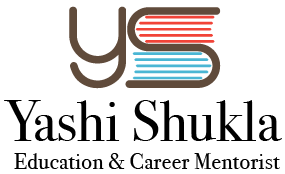My mom finds a baffling delight from drinking from glass, hotel-grade water dispensers. Even when three-day-old lemon rinds float in stale water, drinking from the dispenser remains luxurious. Last year for her birthday, I saved enough to buy a water dispenser for our kitchen counter. However, instead of water, I filled it with handwritten notes encouraging her to chase her dreams of a career.
As I grew older, I noticed that my mom yearned to pursue her passions and to make her own money. She spent years as a stay-at-home mom and limited our household chores as much as she could, taking the burden upon herself so that my brothers and I could focus on our education. However, I could tell from her curiosity of and attitudes toward working women that she envied their financial freedom and the self-esteem that must come with it. When I asked her about working again, she would tell me to focus on achieving the American dream that I knew she had once dreamed for herself.
For years, I watched her effortlessly light up conversations with both strangers and family. Her empathy and ability to understand the needs, wants and struggles of a diverse group of people empowered her to reach the hearts of every person at a dinner table, even when the story itself did not apply to them at all. She could make anyone laugh, and I wanted her to be paid for it. “Mom, have you ever thought about being a stand-up comedian?”
She laughed at the idea, but then she started wondering aloud about what she would joke about and how comedy shows were booked. As she began dreaming of a comedy career, the reality of her current life as a stay-at-home mom sank in. She began to cry and told me it was too late for her. I could not bear to watch her struggle between ambition and doubt.
Her birthday was coming up. Although I had already bought her a present, I realized what I actually wanted to give her was the strength to finally put herself first and to take a chance. I placed little notes of encouragement inside the water dispenser. I asked my family and her closest friends to do the same. These friends told her other friends, and eventually I had grown a network of supporters who emailed me their admiration for my mom. From these emails, I hand wrote 146 notes, crediting all of these supporters that also believed in my mom. Some provided me with sentences, others with five-paragraph-long essays. Yet, each note was an iteration of the same sentiment: “You are hilarious, full of life, and ready to take on the stage.”
On the day of her birthday, my mom unwrapped my oddly shaped present and saw the water dispenser I bought her. She was not surprised, as she had hinted at it for many years. But then as she kept unwrapping, she saw that inside the dispenser there were these little notes that filled the whole thing. As she kept picking out and reading the notes, I could tell she was starting to believe what they said. She started to weep with her hands full of notes. She could not believe the support was real, that everyone knew she had a special gift and believed in her.
Within two months, my mom performed her first set in a New York comedy club. Within a year, my mom booked a monthly headlining show at the nation’s premier comedy club.
I am not sure what happened to the water dispenser. But I have read the notes with my mom countless times. They are framed and line the walls of her new office space that she rented with the profits she made from working as a professional comedian. For many parents, their children’s careers are their greatest accomplishment, but for me my mom’s is mine.
YSC Team’s Comments
This essay is in response to an interesting question a student asked me two years ago – does the essay HAVE to be about me?
My response was, and remains: ultimately, yes. But the story through which you portray yourself? Maybe not.
Here, Zoya narrates this tale of how she inspires her mother to pursue her dreams of independence. By recognising her mother’s strengths (“empathy and ability to understand the needs, wants and struggles of a diverse group of people”) and her challenges (“her struggle between ambition and doubt”), she creates a support network for her mother by collating 146 notes of inspiration from her family and friends.
What do we learn about Zoya?
The very ability she identified in her mother – the empathy, and the ability to understand the needs, wants, and struggles of a diverse group of people. The drive to take any step required to help them address their challenges. The emotional maturity (beyond her years) required to understand and inspire. And hope. In people, in the universe, in herself, to achieve their dreams.
And all this through the humble metaphor of the watercooler; a seemingly mundane object. But observe the initial paragraph that personally sets up the context for her mother’s American dream. It’s the level of specificity and personal connection that AOs enjoy. Rule of thumb: if you don’t feel it as much as Zoya in this essay does, don’t write it!
Through the story of her mother’s dreams, Zoya gracefully highlights her own! Kudos!




